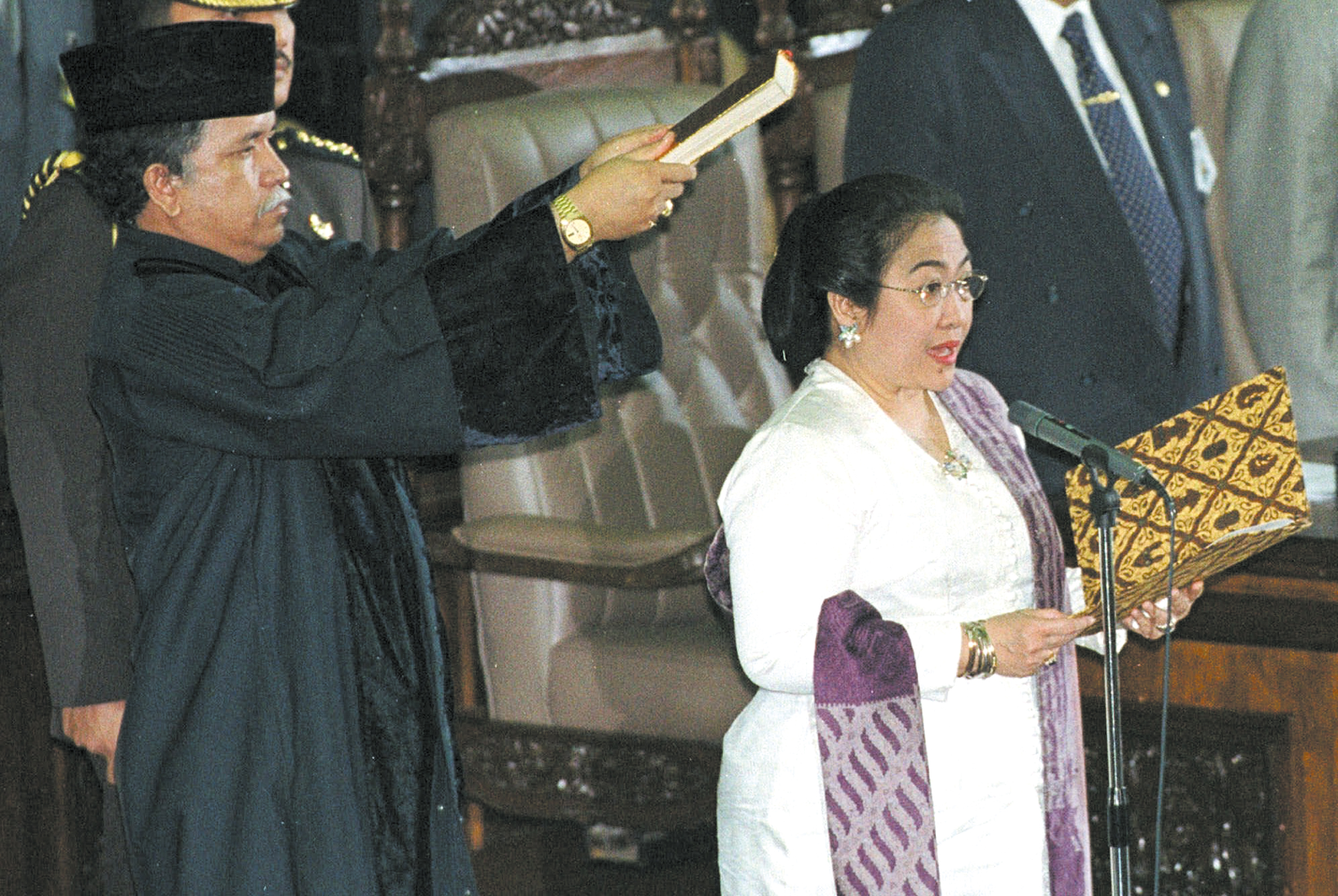Megawati Sukarnoputri, << `mehg` uh WAH tee soo `kahr` noh POO tree >> (1947-…), served as president of Indonesia from 2001 to 2004. She gained the post when her predecessor, Abdurrahman Wahid, lost political support and was forced to step down. Megawati had served as vice president since 1999. She heads the Indonesian Democratic Party of Struggle (PDI-P). In 2004, Megawati ran for reelection as president, but she was defeated in the election by retired General Susilo Bambang Yudhoyono of the Democrat Party.

Megawati was born in Yogyakarta, Indonesia, on Jan. 23, 1947. She is the oldest daughter of Sukarno, leader of Indonesia’s independence struggle and the country’s first president. She studied social and political science at the university level but never completed a degree. In 1966, Suharto and other military leaders seized power from Sukarno. Megawati and her brothers and sisters were closely monitored by the new government, which feared their political influence among their father’s supporters.
Megawati kept a low political profile until the late 1980’s, when she began to criticize publicly the policies of President Suharto and his government. She especially attacked the government’s corruption and abuse of human rights, as well as growing economic inequalities among the Indonesian people. In 1993, Megawati was elected leader of the Indonesian Democratic Party despite government attempts to prevent her election. She became the most visible opposition leader and the symbol of a growing pro-democracy movement. A government-sponsored splinter congress of the party in 1996 ousted her from the leadership, causing a split in the party. The government-sponsored wing of the party then evicted Megawati’s supporters by force from the party headquarters in Jakarta. The eviction sparked widespread rioting. Nevertheless, the government prohibited Megawati’s wing of the party, renamed the Indonesian Democratic Party of Struggle, from running in elections held in 1997.
Suharto resigned as president in May 1998 and was succeeded by B. J. Habibie. Habibie changed the earlier government policy and recognized both wings of the Indonesian Democratic Party. Megawati’s wing (PDI-P) convened a national congress, at which she was reelected head of the party.
In multiparty elections in June 1999, the PDI-P won the most seats in the country’s legislature, the House of Representatives. As a result, many experts predicted that Megawati would become Indonesia’s next president. In October, however, the People’s Consultative Assembly, which at that time elected the president, chose Abdurrahman Wahid of the National Awakening Party to be president. The Assembly then chose Megawati as vice president.
In August 2000, in response to criticism of his administration, Abdurrahman announced he would transfer some of his government duties to Megawati. A growing number of Indonesia’s political leaders accused Abdurrahman of corruption and incompetence and called for him to step down. In July 2001, the Assembly voted to remove Abdurrahman from office, and Megawati became president.
